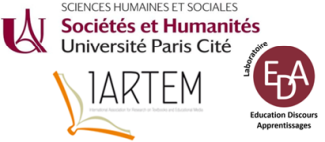Textbooks are a widely spread didactic resource in primary school classrooms, becoming an authority reference in the cultural transmission of the curriculum (Gimeno, 1988). This paper addresses how the socially constructed discourse in the music education curriculum links with the creation of several forms of power (Foucault, 1973). We are concerned with the construction of identity and how knowledge is constructed. It is relevant then, to turn to the theoretical literature of postcolonial and gender studies, as they represent a recognised research approach that problematizes concealments and denied identities, as well as knowledge that is disregarded or considered of a lower order. Following Van Dijk (1999), Critical Discourse Studies (CDS) investigate how the abuse of social power, domination and inequality are practised, reproduced, and occasionally combated through texts and speech in social and political contexts. We know that music education in primary schools should provide the knowledge for good basic musical education, but we are concerned that this basic transmission of musical knowledge, through the way it is presented in textbooks, may contribute to an ideologically biassed way of understanding ourselves as human beings and recognising ourselves in our popular, identitarian knowledge, rooted in our particular cultural roots. Which knowledge and which identities become relevant and can be determinant in the construction of subjectivity using music education textbooks at primary school level? Is CDA then an appropriate methodological and epistemological option for the study of discourse and power in music education textbooks?
The aim of this research is to find out if music education content, as is presented in textbooks, influences the development of identities and knowledge. To get this research objective, we build up the analysis using the methodological contributions of Critical Discourse Analysis (CDA), developing our own CDA method based on three previous models: Fairclough's Three-Dimensional Approach (1995), Van Dijk's Socio-Cognitive Approach (2008) and Wodak's Discourse-Historical Approach (2003). Our particular model maintains the three steps proposed by Fairclough and introduces the cognitive contributions from Van Dijk's model and the importance of analysing discourses as a possibility of social transformation from Wodak's approach. Thus, our analysis consists of three phases: i) In the first phase we develop an exhaustive semiotic analysis of music textbooks focusing on songs, auditions and movement proposals. ii) In the second phase, we contextualise the results of the semiotic analysis in the institutionalised schooling framework and transfer it to a study of discursive practices. iii) We inquire about the translation made by discourses in our daily life practices. In this third phase, we can also appreciate how these social practices produce and reproduce hegemonic cultural discourses and how the power relations identified in the second phase take shape and become evident.
The corpus of this analysis is composed of twenty-four textbooks selected according to three criteria: books adapted to the new Spanish educational legislation (LOMLOE), books published in the two languages of the Valencian Community (Catalan and Spanish), and finally heterogeneous publishers, mixing specific Valencian located publishers with Spanish publishers.
Finally, the paper will show how music textbooks can be spaces of power in which identities are formed and certain knowledge is created according to hegemonic cultural codes, leading to the conclusion that not everything is represented in music textbooks. Thanks to the CDA process and the epistemic tools taken from postcolonial and gender theory, we could appreciate not only the presences, but also the absences and the meanings of those absences in the music education textbooks.
-
Fairclough, N. (1995). Critical discourse analysis. The critical study of language. Longman
-
Foucault, M. (1973). El orden del discurso. Fábula.
-
Gimeno, J. (1988). El currículum: Una reflexión sobre la práctica. Morata.
-
Van Dijk, T. A. (1999). El análisis crítico del discurso. (Trad. M. González). Antrophos 186, 23-36.
-
Van Dijk, T. A. (200). Discourse and power. Gedisa.
-
Wodak, R. (2001). The Discourse-Historical Approach in R. Wodak & M. Meyer (Eds.). Methods of Critical Discourse Analysis. Sage publications.

 PDF version
PDF version
